
One common behavioral problem in children in ASD is not following instructions. There could be different reasons behind the behavior, and by identifying the possible reasons, parents will be able to resolve the issue efficiently.
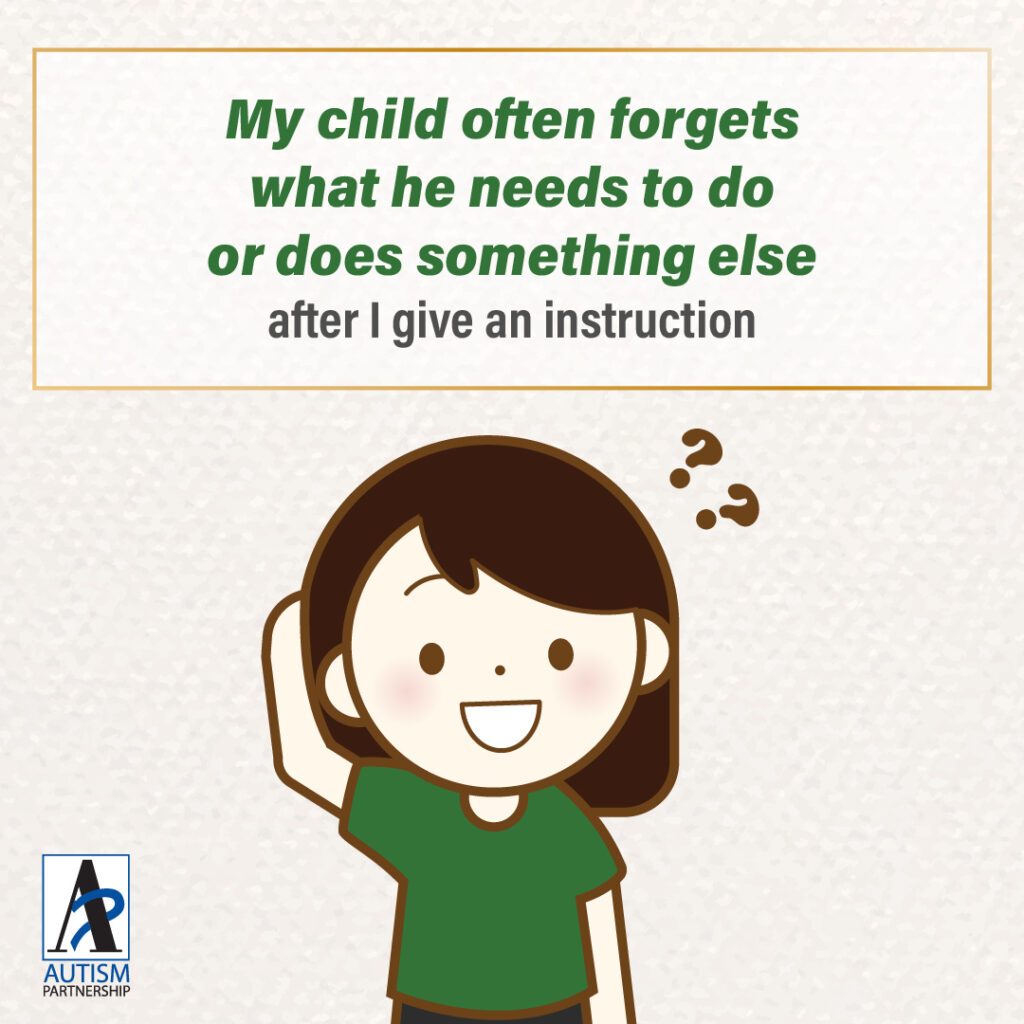
My child responds only after I repeat the instructions at least 3 times.
This is a typical phenomenon parents face at home. When parents talk to their children, they rarely respond at the first time, either because they are too busy with themselves or they are just used to delaying their response to their parents. Parents often have to repeat themselves, sometimes with a louder voice or even with a serious tone until their child listens. And over time, such sequence of interaction repeats so many times that it becomes a habit for the child to respond only when an instruction is repeated or delivered in a stern way.
To prevent the forming of the undesirable habit, parents should praise children and provide meaningful rewards when they follow an instruction right away. And when they do not respond, parents should follow through immediately by providing feedback and making sure that their children follow the instruction again by providing prompts or assistance.
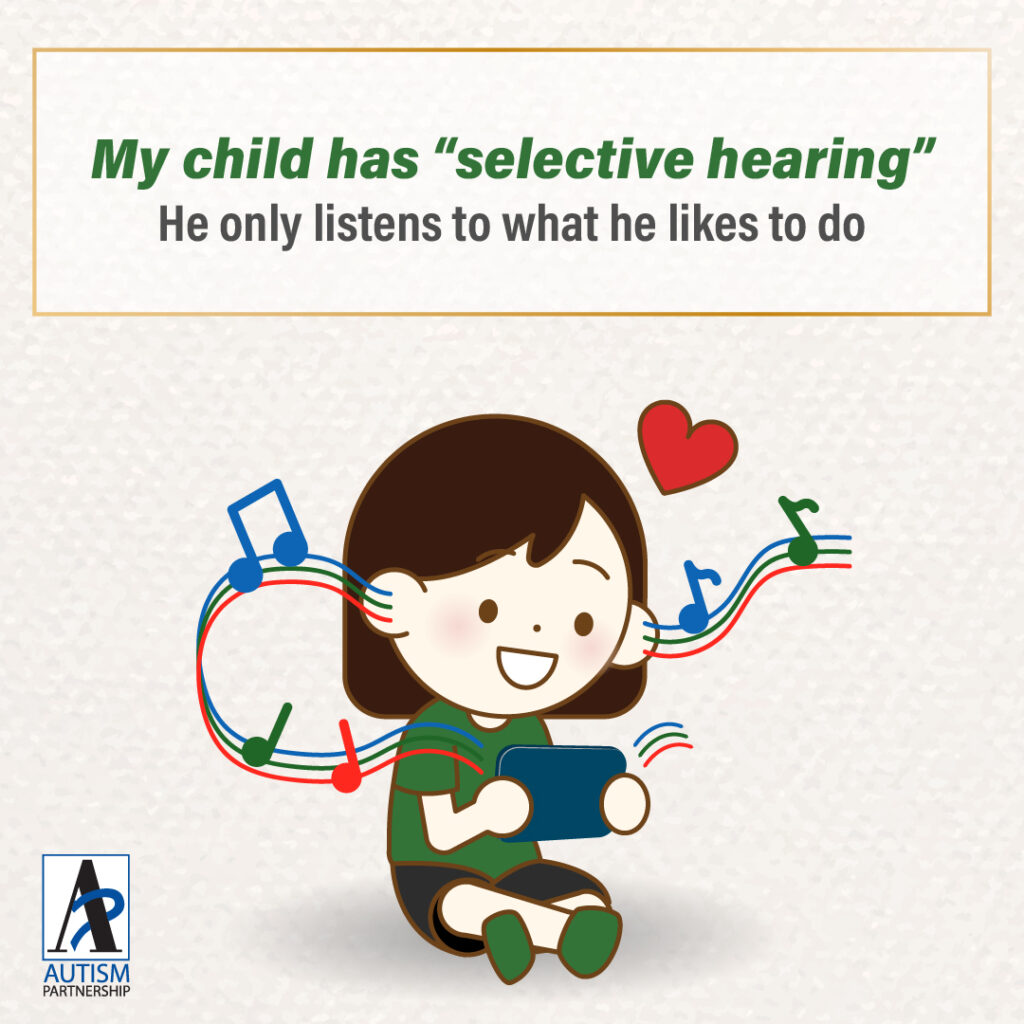
In this case, lack of motivation is the major reason why children do not always listen to parents. Children with Autism often have less motivation to respond to others because the attention and compliment from others are not crucial or meaningful to them. “Selective hearing” is likely worsen when the child is engaged in a preferred activity, as following an instruction would cause a disruption to the activity.
One effective strategy to deal with this issue is that parents identify what instructions and in what situations that children have more difficulties in listening to them, and provide more praises and rewards when the children responds right away. Again, following through is crucial as it lets the children what your expectation is.
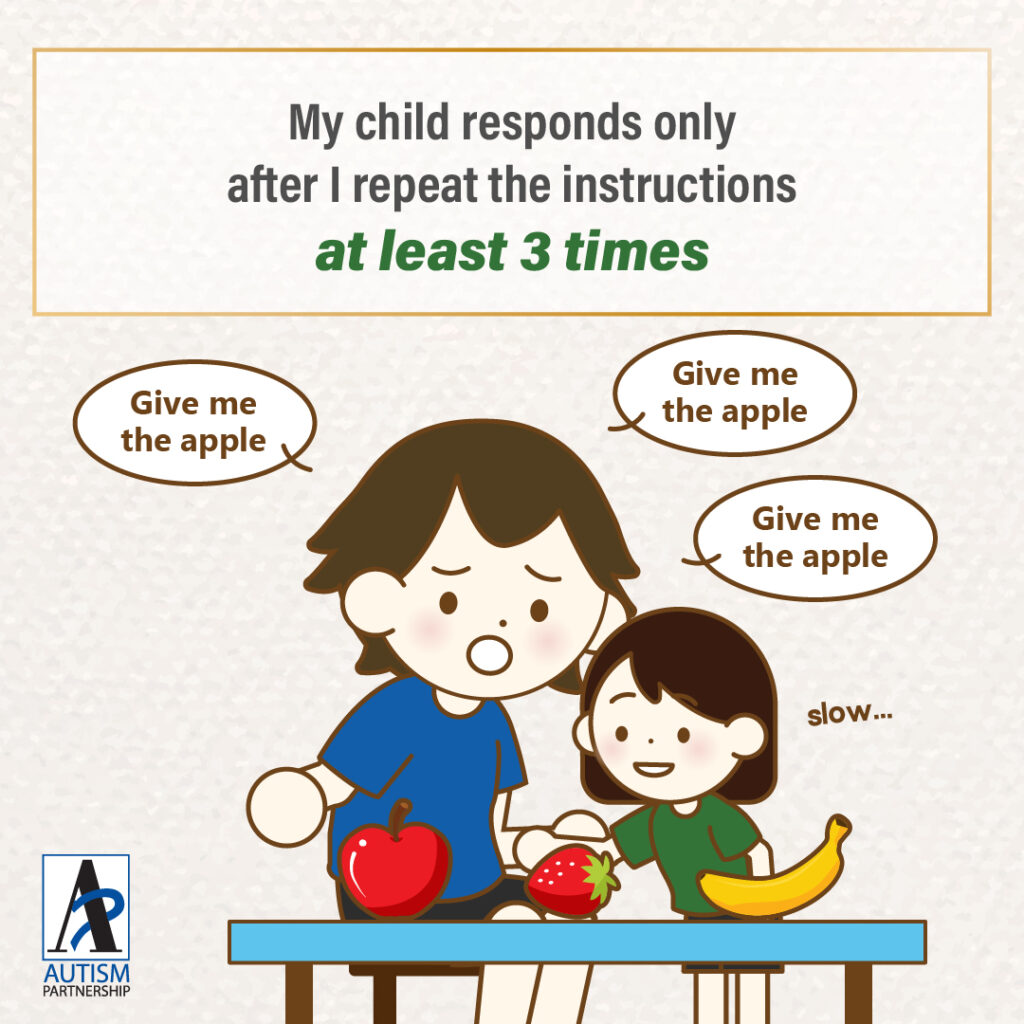
My child often forgets what he needs to do or does something else after I give an instruction.
Some children with ASD may get distracted when parents give an instruction, or when they are in the middle of fulfilling parent’s demand. They may get distracted by tangible or non-tangible things in the environment, certain elements in the task that they are asked to do, or their own self-stimulatory behaviors. When this type of situations occurs, parents usually find themselves frequently reminding their children to continue with the task, or to hurry up.
Developing tolerance to distractions and self-control are the key to improve children’s ability in completing a task without reminders. It can be done by systematically increasing distractions in the environment and lengthening the time required by the task. Furthermore, when a child stops in the middle of a task, instead of giving reminders, parents should follow through by giving feedback and requiring the child to redo the task.
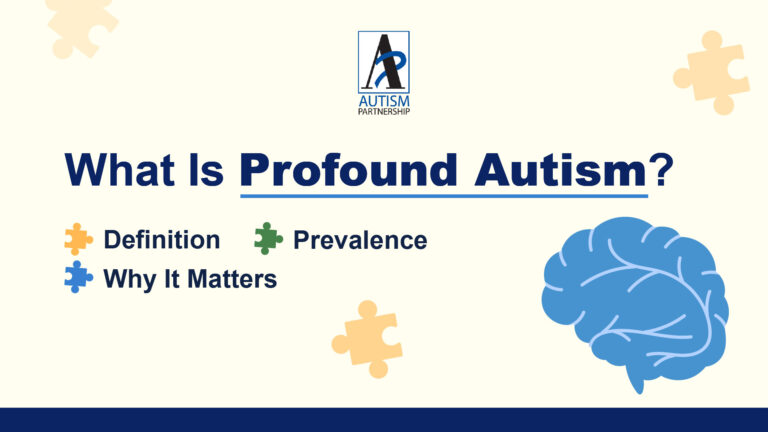
Individuals on the autism spectrum vary greatly in how their autistic characteristics shape their life. Some individuals go through their entire life without receiving a diagnosis. On the other hand, some children demonstrate indicators shortly after birth and are diagnosed as young as assessments allow. This article explains how autism has been defined over time—and […]
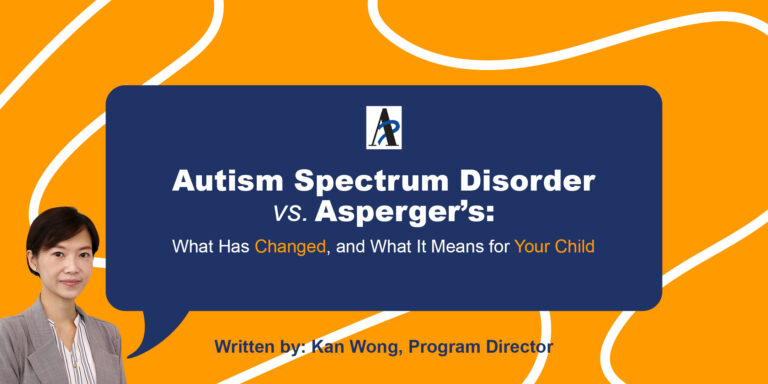
Over the years, I have met many parents who come to me with the same question: “What is the difference between Autism Spectrum Disorder and Asperger’s Disorder?” Some parents tell me their child was diagnosed with Asperger’s, not autism. Others hear from friends or online sources that Asperger’s is milder and wonder whether their child […]
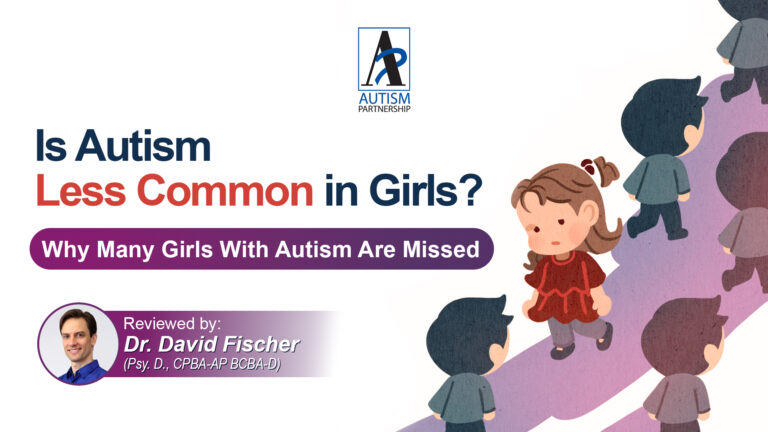
Is autism really less common in girls than boys? Should parents feel more relieved if they have a daughter? Why Fewer Girls Are Diagnosed With Autism Autism Diagnosis in Boys and Girls: What the Data Shows How Autism Often Presents Differently in Girls – Social Motivation, Language, and Behaviour Other Common Traits Seen in Girls […]
Please share to let more people learn about ASD and ABA therapy:

All information received will always remain confidential. We will contact you as soon as we review your message. Thanks